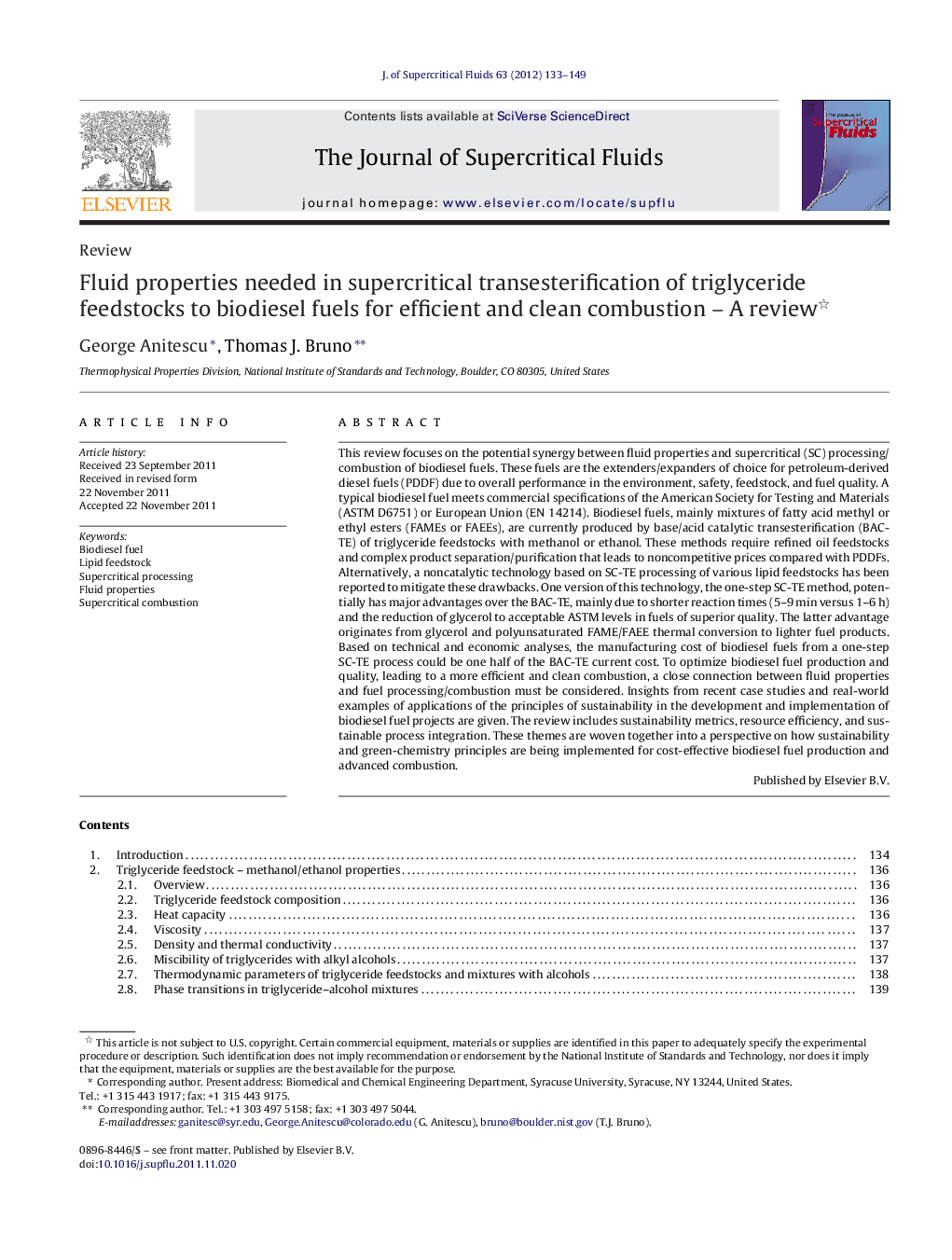| Article ID | Journal | Published Year | Pages | File Type |
|---|---|---|---|---|
| 231162 | The Journal of Supercritical Fluids | 2012 | 17 Pages |
This review focuses on the potential synergy between fluid properties and supercritical (SC) processing/combustion of biodiesel fuels. These fuels are the extenders/expanders of choice for petroleum-derived diesel fuels (PDDF) due to overall performance in the environment, safety, feedstock, and fuel quality. A typical biodiesel fuel meets commercial specifications of the American Society for Testing and Materials (ASTM D6751) or European Union (EN 14214). Biodiesel fuels, mainly mixtures of fatty acid methyl or ethyl esters (FAMEs or FAEEs), are currently produced by base/acid catalytic transesterification (BAC-TE) of triglyceride feedstocks with methanol or ethanol. These methods require refined oil feedstocks and complex product separation/purification that leads to noncompetitive prices compared with PDDFs. Alternatively, a noncatalytic technology based on SC-TE processing of various lipid feedstocks has been reported to mitigate these drawbacks. One version of this technology, the one-step SC-TE method, potentially has major advantages over the BAC-TE, mainly due to shorter reaction times (5–9 min versus 1–6 h) and the reduction of glycerol to acceptable ASTM levels in fuels of superior quality. The latter advantage originates from glycerol and polyunsaturated FAME/FAEE thermal conversion to lighter fuel products. Based on technical and economic analyses, the manufacturing cost of biodiesel fuels from a one-step SC-TE process could be one half of the BAC-TE current cost. To optimize biodiesel fuel production and quality, leading to a more efficient and clean combustion, a close connection between fluid properties and fuel processing/combustion must be considered. Insights from recent case studies and real-world examples of applications of the principles of sustainability in the development and implementation of biodiesel fuel projects are given. The review includes sustainability metrics, resource efficiency, and sustainable process integration. These themes are woven together into a perspective on how sustainability and green-chemistry principles are being implemented for cost-effective biodiesel fuel production and advanced combustion.
Graphical abstractFigure optionsDownload full-size imageDownload as PowerPoint slideHighlights► Connectivity fluid properties–processing/combustion of biodiesel fuels is discussed. ► Superior results of SC processing/combustion are compared to conventional methods. ► New research toward cost-effective biodiesel fuels of superior quality is proposed.
